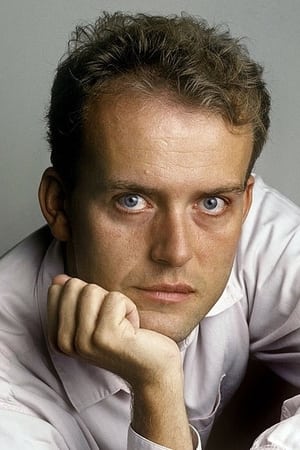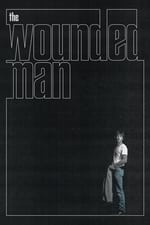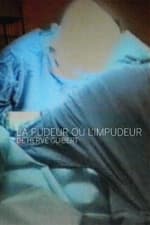Información personal
Conocido por Guion
Créditos conocidos 5
Sexo Masculino
Fecha de nacimiento 14 de diciembre de 1955
Fecha de defunción 27 de diciembre de 1991 (36 años)
Lugar de nacimiento Saint-Cloud, Seine-et-Oise [now Hauts-de-Seine], France
También conocido como
- -
Puntuación del contenido
100
¡Sí! ¡Buena pinta!
Iniciar sesión para informar de un problema
Biografía
Hervé Guibert (14 December 1955 – 27 December 1991) was a French writer and photographer. The author of numerous novels and autobiographical studies, he played a considerable role in changing French public attitudes to HIV/AIDS. He was a close friend of Michel Foucault.
Guibert was born in Saint-Cloud, Hauts-de-Seine, to a middle-class family and spent his early years in Paris, moving to La Rochelle from 1970 to 1973.
After working as a filmmaker and actor, he turned to photography and journalism. In 1978, he successfully applied for a job at France's evening paper Le Monde and published his second book, Les Aventures singulières (published by Éditions de Minuit). In 1984, Guibert shared a César Award for best screenplay with Patrice Chéreau for L'homme blessé. Guibert had met Chéreau in the 1970s during his theatrical years. He won a scholarship between 1987 and 1989 at Villa Medicis in Rome with his friend, writer Mathieu Lindon. He described these years in L'Incognito, published in 1989.
Guibert's writing style was inspired by the French writer Jean Genet and, later, by the work of Austrian writer Thomas Bernhard. Three of his lovers occupied an important place in his life and work: Thierry Jouno, director of the International Visual Theatre for the deaf in Paris, whom he met in 1976; Michel Foucault, whom he met in 1977; and Vincent Marmousez, a teenager of fifteen who inspired his novel Fou de Vincent (published in English as Crazy for Vincent).
For a time in the 1980s Guibert was a reader at the institute for young blind in Paris, Institut National des Jeunes Aveugles, which led to his novel Des aveugles (published in English as Blindsight).
In January 1988 Guibert was diagnosed with AIDS. From then on, he worked at recording what was left of his life. In June the following year, he married Christine, the partner of Thierry Jouno, so that his royalty income would eventually pass to her and her two children. In 1990, Guibert publicly revealed his HIV status in his roman à clef À l'ami qui ne m'a pas sauvé la vie (published in English as To the Friend Who Did Not Save My Life). Nina Bouraoui in The Guardian described the book thus: "In this book, he tells the story of his illness, AIDS, in the late 1980s. He tells of how life with the virus became an existential adventure, how it affected a generation, how it stole his friends and lovers, and how writing was for him a bulwark against death and destruction. It's the story of an era, a turning point – when AIDS transformed our relationship with desire and sexuality forever."
Upon publication, Guibert immediately found himself the focus of media attention, featured in newspapers and appearing on several television talk shows. ...
Source: Article "Hervé Guibert" from Wikipedia in English, licensed under CC-BY-SA 3.0.
Hervé Guibert (14 December 1955 – 27 December 1991) was a French writer and photographer. The author of numerous novels and autobiographical studies, he played a considerable role in changing French public attitudes to HIV/AIDS. He was a close friend of Michel Foucault.
Guibert was born in Saint-Cloud, Hauts-de-Seine, to a middle-class family and spent his early years in Paris, moving to La Rochelle from 1970 to 1973.
After working as a filmmaker and actor, he turned to photography and journalism. In 1978, he successfully applied for a job at France's evening paper Le Monde and published his second book, Les Aventures singulières (published by Éditions de Minuit). In 1984, Guibert shared a César Award for best screenplay with Patrice Chéreau for L'homme blessé. Guibert had met Chéreau in the 1970s during his theatrical years. He won a scholarship between 1987 and 1989 at Villa Medicis in Rome with his friend, writer Mathieu Lindon. He described these years in L'Incognito, published in 1989.
Guibert's writing style was inspired by the French writer Jean Genet and, later, by the work of Austrian writer Thomas Bernhard. Three of his lovers occupied an important place in his life and work: Thierry Jouno, director of the International Visual Theatre for the deaf in Paris, whom he met in 1976; Michel Foucault, whom he met in 1977; and Vincent Marmousez, a teenager of fifteen who inspired his novel Fou de Vincent (published in English as Crazy for Vincent).
For a time in the 1980s Guibert was a reader at the institute for young blind in Paris, Institut National des Jeunes Aveugles, which led to his novel Des aveugles (published in English as Blindsight).
In January 1988 Guibert was diagnosed with AIDS. From then on, he worked at recording what was left of his life. In June the following year, he married Christine, the partner of Thierry Jouno, so that his royalty income would eventually pass to her and her two children. In 1990, Guibert publicly revealed his HIV status in his roman à clef À l'ami qui ne m'a pas sauvé la vie (published in English as To the Friend Who Did Not Save My Life). Nina Bouraoui in The Guardian described the book thus: "In this book, he tells the story of his illness, AIDS, in the late 1980s. He tells of how life with the virus became an existential adventure, how it affected a generation, how it stole his friends and lovers, and how writing was for him a bulwark against death and destruction. It's the story of an era, a turning point – when AIDS transformed our relationship with desire and sexuality forever."
Upon publication, Guibert immediately found himself the focus of media attention, featured in newspapers and appearing on several television talk shows. ...
Source: Article "Hervé Guibert" from Wikipedia in English, licensed under CC-BY-SA 3.0.
Conocido por
Guion
|
|||
|
Interpretación
|
|||
|
|||
|
|||
|
Dirección
|
Cámara
|


